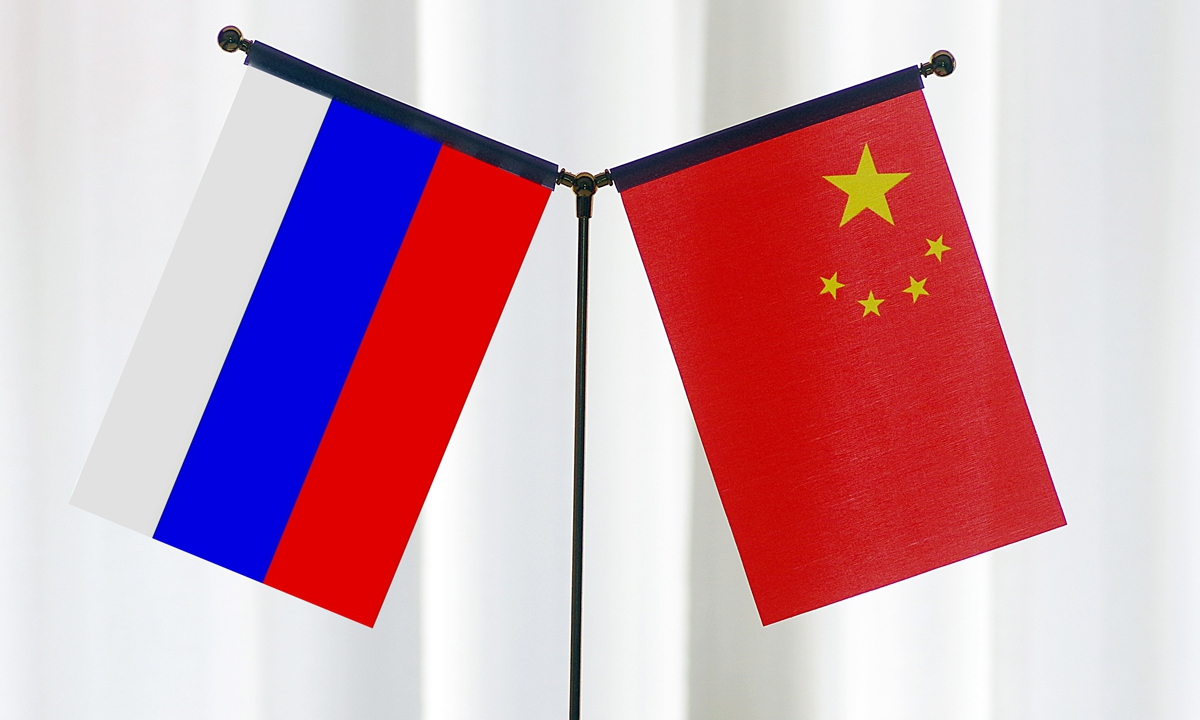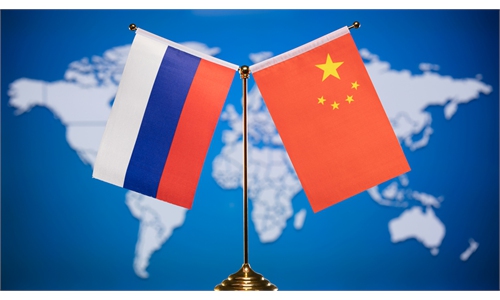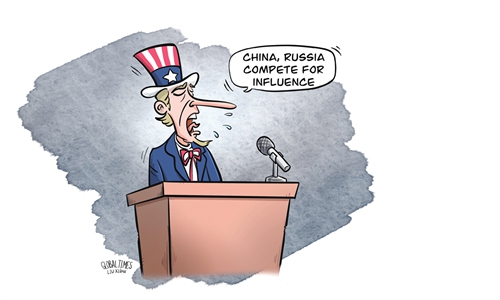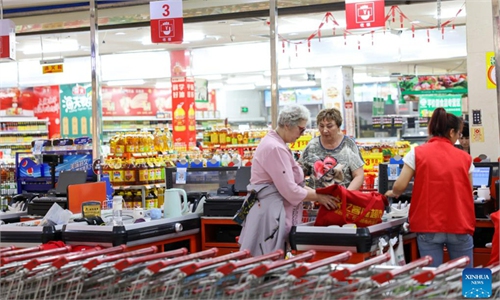
China-Russia Photo: VCG
Key investment projects are set to improve the quality of China-Russia trade and provide further impetus for bilateral trade to reach $300 billion by 2030, Chinese experts said on Tuesday, as cooperation meetings were held in Russia this week.
Russian and Chinese authorities agreed to update the list of significant projects during a meeting of the Sino-Russian intergovernmental commission on investment cooperation, Russian news agency TASS reported on Tuesday, citing First Deputy Prime Minister of Russia Denis Manturov.
Chinese Vice Premier Ding Xuexiang is in Russia from Sunday to Tuesday, co-chairing the meeting as well as the 21st meeting of the China-Russia Energy Cooperation Committee and attending the sixth China-Russia Energy Business Forum.
"I consider our meeting to be rather timely and fruitful. Reaching agreements on updating the list of significant projects is very important. There are more than 60 initiatives with the total amount of declared investment exceeding $138 billion," Manturov said.
"We also saw trade rise so far this year, and it has the potential to rise to $300 billion by 2030, according to our estimates," Manturov said.
Ding said that the two sides have strengthened the top-level design of investment cooperation, steadily promoted cooperation on key projects, created new highlights in sub-national cooperation, and achieved new positive results, according to the Xinhua News Agency.
The potential of investment cooperation should be tapped, and sub-national cooperation should be better carried out, Ding said, adding that the two sides should strengthen policy support and actively create a favorable investment environment.
Observers said that frequent and continuous high-level official exchanges and intensified cooperation among localities in recent weeks showed that concrete steps were being taken in line with the strategic guidance of the two heads of state. These meetings and exchanges will further boost bilateral trade and economic cooperation, especially investment.
Song Kui, president of the Contemporary China-Russia Regional Economy Research Institute, told the Global Times on Tuesday that trade between China and Russia is in a state of vital transition, as industrial cooperation featuring key projects will vastly improve the quality of bilateral trade and the trade structure.
"This is a major change. Key project cooperation will become a symbol of higher-level bilateral cooperation," Song said.
Bilateral trade grew fast in recent years, hitting a record of $240.11 billion last year, up 26.3 percent year-on-year, customs data showed. However, trade growth slowed in the first half of this year as the US tightened its unilateral sanctions on Russia. In the first six months, bilateral trade reached $116.87 billion, up 1.8 percent year-on-year.
Bilateral cooperation on key projects will greatly enhance the cross-border flow of productive factors, improve the quality of trade toward high-level development and become a new engine to drive trade higher, Song said, noting that more processed Russian goods with higher added value will be traded in addition to the current range of basic resources and materials.
Even as bilateral trade growth was affected by the intensified US financial crackdown during the first half, there's still a good chance of meaningful growth for the full year as more work is being done to improve the financial infrastructure to counter the impact of US sanctions, with possible breakthroughs in the second half, Song noted.
More than 90 percent of mutual payments in bilateral trade are now conducted in national currencies, TASS reported, citing Manturov.
China and Russia are actively advancing bilateral cooperation despite external disruptions, with the two sides zooming in on expanding trade and improving its quality, Zhang Hong, an associate research fellow at the Institute of Russian, Eastern European and Central Asian Studies of the Chinese Academy of Social Sciences, told the Global Times.




